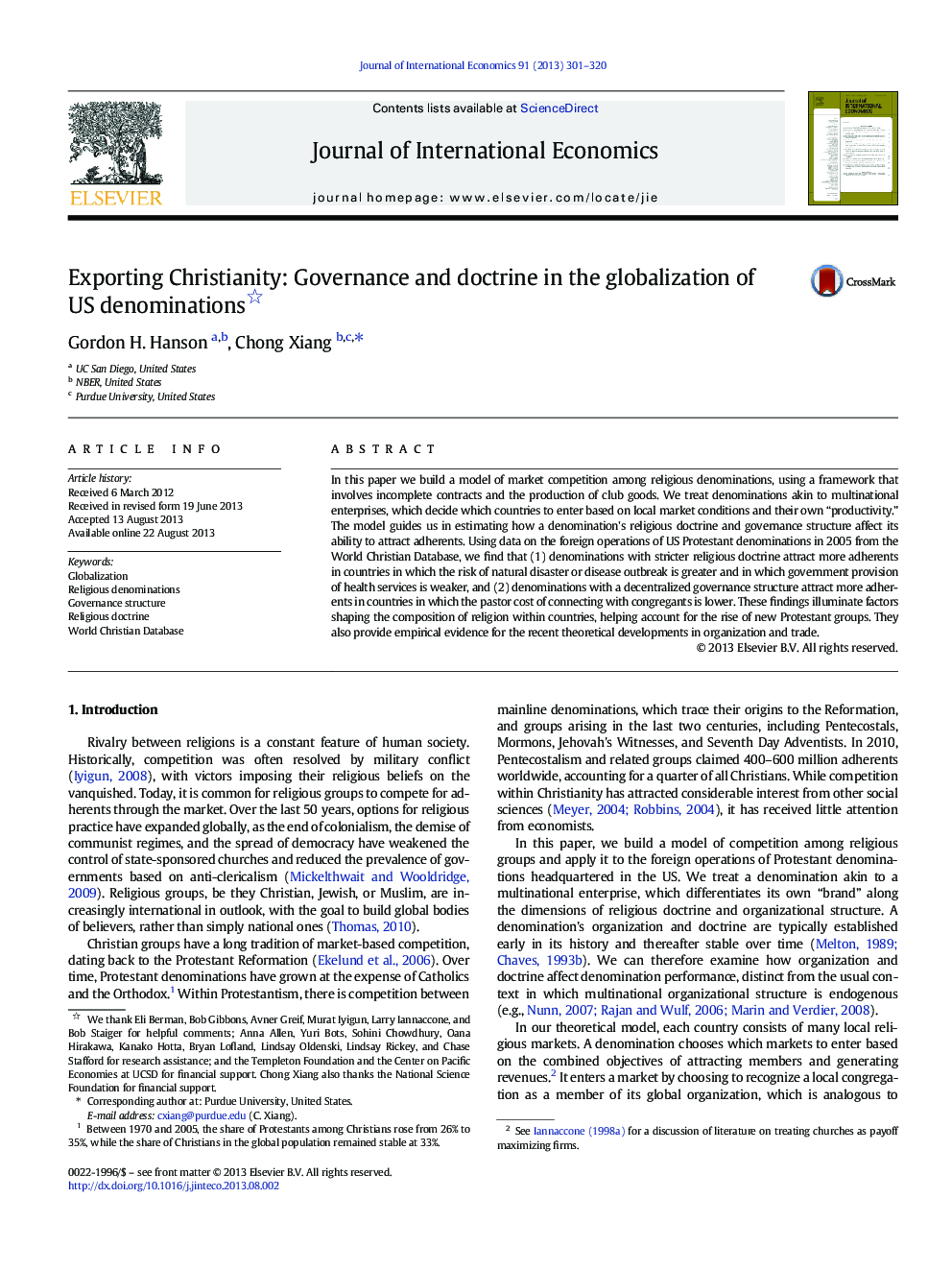| Article ID | Journal | Published Year | Pages | File Type |
|---|---|---|---|---|
| 962508 | Journal of International Economics | 2013 | 20 Pages |
Abstract
In this paper we build a model of market competition among religious denominations, using a framework that involves incomplete contracts and the production of club goods. We treat denominations akin to multinational enterprises, which decide which countries to enter based on local market conditions and their own “productivity.” The model guides us in estimating how a denomination's religious doctrine and governance structure affect its ability to attract adherents. Using data on the foreign operations of US Protestant denominations in 2005 from the World Christian Database, we find that (1) denominations with stricter religious doctrine attract more adherents in countries in which the risk of natural disaster or disease outbreak is greater and in which government provision of health services is weaker, and (2) denominations with a decentralized governance structure attract more adherents in countries in which the pastor cost of connecting with congregants is lower. These findings illuminate factors shaping the composition of religion within countries, helping account for the rise of new Protestant groups. They also provide empirical evidence for the recent theoretical developments in organization and trade.
Keywords
Related Topics
Social Sciences and Humanities
Economics, Econometrics and Finance
Economics and Econometrics
Authors
Gordon H. Hanson, Chong Xiang,
